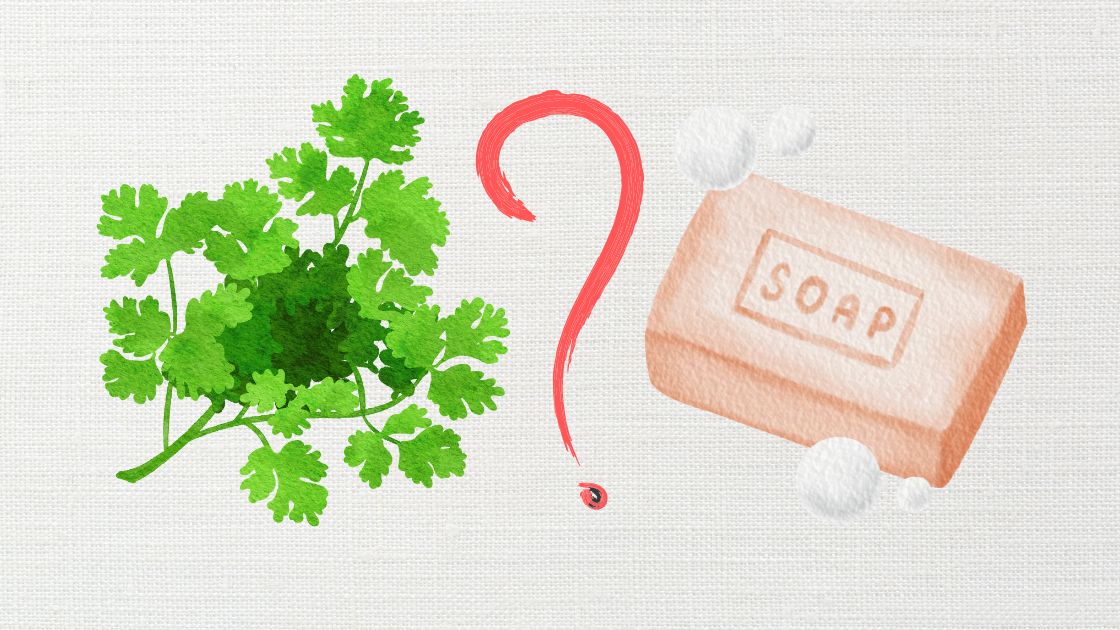Cilantro is one of those “love it or hate it” herbs. Some people go nuts for it and add it to everything. Others will meticulously pick every green leaf out of their pico de gallo before eating.
Your genetic variants shape how you taste things – from whether you taste certain bitter flavors to how strong sweets will taste. Genes also impact whether cilantro is likely to taste weird to you.
The Cilantro Soap Gene
A genome-wide study looked at the genes of over 25,000 people to determine which genes were involved in thinking that cilantro tastes like soap.
Genome-wide association studies are now possible with huge amounts of data and computing power. They take away any preconceived ideas of which genes should be associated with a trait or disease — and they look at everything.
For the soapy taste of cilantro, the gene turned out to be an odor receptor instead of a taste receptor![ref]
Odor receptors: More than how things smell
Humans have around 400+ different olfactory receptor proteins coded for by our genes. So far, only a small portion of these receptors have been mapped to specific odors.
How do odor receptors work?
The olfactory receptor proteins are receptors on the surface of certain cells that can bind with specific molecules. When the odorant molecule binds to the receptor, it triggers actions within the cell, causing signals to be sent to the olfactory center in the brain.
These receptor proteins, located in airway passages such as the nose, let your brain know that you are smelling something. Most odor receptors can bind to multiple different molecules, and how well the molecules bind gives rise to the strength with which you perceive an odor.
The odor receptor identified for the soapy taste of cilantro binds to several of the molecules that give cilantro its characteristic smell.
Cilantro Soap Genotype Report:
Not a member? Join here. Membership lets you see your data right in each article and also gives you access to the member’s only information in the Lifehacks sections.
OR6A2 gene:
It turns out that an olfactory receptor gene variant may play a role in how we perceive the taste of cilantro.[ref]
Check your genetic data for rs72921001 (23andMe v4, v5):
- A/A: less likely to think cilantro tastes like soap
- A/C: less likely to think cilantro tastes like soap
- C/C: more likely to think cilantro tastes like soap
Members: Your genotype for rs72921001 is —.
What else can I learn?
Your taste in cilantro is just the tip of the iceberg of what you can learn from your genetic raw data.
- Find out how genes impact your need for different vitamins, like folate or vitamin B12.
- Learn how the ABCC11 gene connects body odor and ear wax.
- Explore your genetic risk factors for diseases like diabetes or heart disease.
Hey! Want to go further with your genetic raw data? Join as a Member!
Related Articles and Topics
Lactose Intolerance Genes
Your genes control whether you are likely to produce lactase as an adult. Check your 23andMe or other genetic data to see if you are likely to enjoy a big glass of milk.
Asparagus Pee: Genes and Odor Detection
Can you smell asparagus in your pee? It is a smell that is inescapable, overwhelming, and unique. Right? Well, some people actually have no idea how pungent it can be.
Are you genetically less likely to get the flu?
Have you ever wondered why some people never seem to get the flu when it is going around? Simply put, some people are just more susceptible to getting the flu than others. Learn more and see if you are more or less susceptible to the flu.
Genetic Superpowers Report
This Genetic Superpowers Report looks at the positive side of genetic variants. Everyone has some kind of genetic superpower, and hopefully, this report will highlight yours!
References:
Eriksson, Nicholas, et al. “A Genetic Variant near Olfactory Receptor Genes Influences Cilantro Preference.” Flavour, vol. 1, no. 1, Nov. 2012, p. 22. BioMed Central, https://doi.org/10.1186/2044-7248-1-22.

